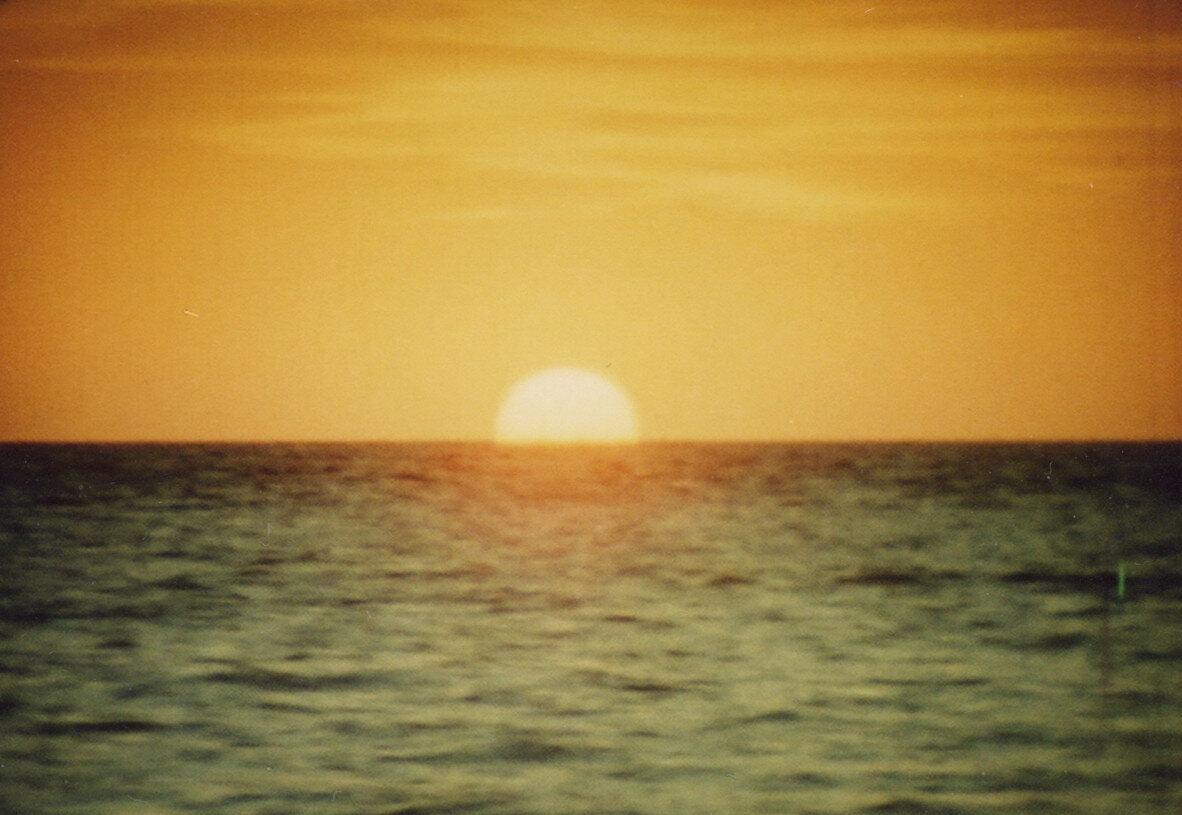the green ray

open in spotify · apple music · youtube
“Ah! Que le temps vienne | Où les cœurs s’éprennent.
/
Ah for the days | That set our hearts ablaze”





































“Once he went into the mountains on a clear, sunny day, and wandered about for a long time with a tormenting thought that refused to take shape. Before him was the shining sky, below him the lake, around him the horizon, bright and infinite, as if it went on forever. For a long time he looked and suffered. He remembered now how he had stretched out his arms to that bright, infinite blue and wept. What had tormented him was that he was a total stranger to it all. What was this banquet, what was this great everlasting feast, to which he had long been drawn, always, ever since childhood, and which he could never join? Every morning the same bright sun rises; every morning there is a rainbow over the waterfall; every evening the highest snowcapped mountain, there, far away, at the edge of the sky, burns with a crimson flame; every little fly that buzzes near him in a hot ray of sunlight participates in this whole chorus: knows its place, loves it, and is happy; every little blade of grass grows and is happy! And everything has its path, and everything knows its path, goes with a song and comes back with a song; only he knows nothing, understands nothing, neither people nor sounds, a stranger to everything and a castaway.”
“This ray has the virtue of making that he who has seen it can never make mistakes in the things of the heart; its appearance destroys illusions and lies; and those who have had the good fortune to see it only once, can already see clearly in their hearts, and in those of others.”
“I kept thinking about the uneven quality of time—the way it was almost always so empty, and then with no warning came a few days that felt so dense and alive and real that it seemed indisputable that that was what life was, that its real nature had finally been revealed. But then time passed and unthinkably grew dead again, and it turned out that that fullness had been an aberration and might never come back.”
Film · Éric Rohmer's 1986 masterwork Le Rayon vert, translated as The Green Ray but initially released in the U.S. as simply, Summer. this central piece delves into the psyche of an ordinarily miserable and newly single woman in the height of Parisian summer. Moving restlessly from one picturesque holiday destination to the next, she's searching for something as fleeting and elusive as the phenomenon of the green ray. Equal parts irritatingly absurd and cloyingly sentimental, The Green Ray reminds us both of our power and powerlessness in the throes of life and romance.
Words I · From Rimbaud's Song of the Highest Tower, this is also the epigram of our film, remarking on those short-lived moments that remind us of the beauty and hope amongst otherwise unremarkable days.
Words II · From Fyodor Dostoevsky's the Idiot, which our heroine reads during her aimless summer quest. This passage conveys our theme of finding our place, reveling in moments of joy, and remembering that the pursuit of anything higher is futile—both in that it can't be achieved and that we can't help but seek it out.
Paintings · These Eric Ernest johnson paintings, the first of which is titled The Green Flash, were part of his show called From the Rock to the Rainbow at Kantor in Los Angeles. The pieces are "odes to how and where we live...Earth. They are tales of the natural world and our relationship with it, all there is to see, and touch, and feel...and perhaps also about what we have forgotten."
Music · I and I written by Alexis Glickman of California-based surf rock band Sandy's. It Plays with the unlikelihood of mutual perception, being present, and the sometimes deceitful care we give "in the morning of the emerald sea."
Words III · Jules Verne's novel of the same title as our film bears little similarity to the film but has one striking resemblance—the act of weeping with joy. Although it comes from different characters, the context is the same. We weep when reminded that all our banal struggles and pedestrian dramas are nothing and yet everything. The permanent and ephemeral yet infinite nature of love and life makes us weep with joy and sorrow for all we've lost and all we will lose.
Video · This short film, The Green Ray, is part of The Sun Quartet series by Tacita Dean captures the phenomenon of the green ray off the coast of Madagascar which she narrates to us as "a harbinger of great change or fortune in [viewers'] lives."
Words IV · From The Idiot by Elif Batuman. The reference is obvious, and the passage ties in the rest of this compendium as, ultimately, time is the unknowable and unseeable force that drives these moments of meaning and returns us to our unconscious days.
further reading:






